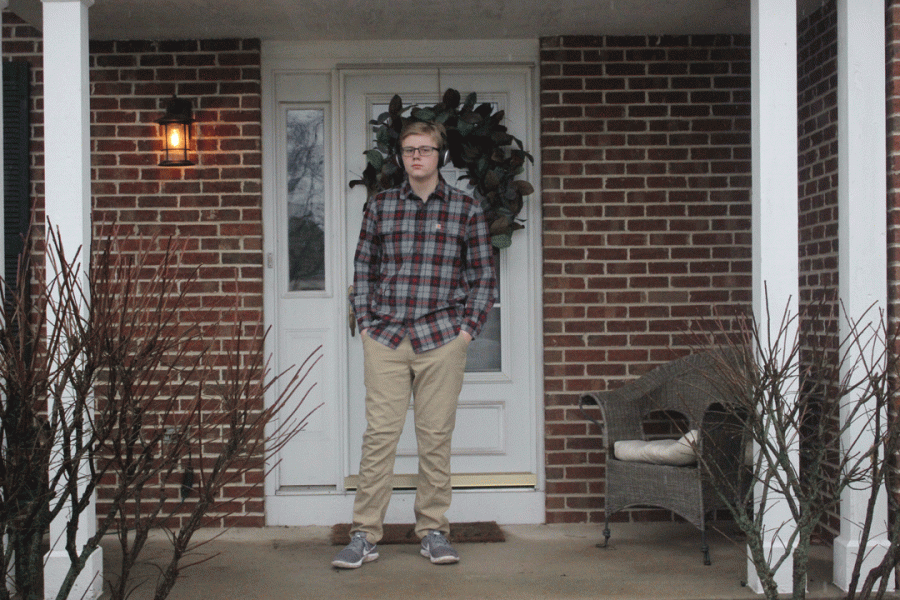Living (and Dying) the Dream
Popular music may be more impacted by death than previously thought.
Many people listen to music without ever considering the story behind it.
If someone were asked to picture a musician, most people would probably picture a rockstar—someone famous, living the dream and able to do whatever they wanted. Popular musicians have the unique job of connecting with what could be millions or billions of people, and they have a long-lasting impact on that audience, which may sound like the perfect life; however, based on a study by The Conversation, musicians have been proven to die up to 25 years earlier than the average person, and even after death, their legacy may carry on for decades. Death has a much greater impact on pop music than many people realize.
A musician’s goal is to make music that can appeal to all; for a majority of musicians, making music to their preference and creating a connection with their audience is their main priority. As soon as they enter the industry, they are presented with a lifestyle that many simply cannot handle. The constant stress and repetitive nature of touring, repeating the same concert schedule in unfamiliar cities, forces many to embrace other methods of introducing something new into their lives.
ACHS fine arts teacher and director of bands Jonathan Untch elaborates on the reasons behind this pattern of behavior.
“They get into this routine of monotony,” Untch said. “These people happen to do this job where they’re paid more money than they know what to do with, and there’s people around that allow them to get into substance abuse and everything like that… and they’re still praised for it. So, it’s almost like there’s a culture in popular music, rewarding bad behavior, or dangerous behavior.”
This use of dangerous behavior to break the repetitive nature of a musician’s life can lead to an increase in mortality rates for musicians.
According to a study done by The Conversation, when compared to the general U.S. population, accidental death rates, including accidental overdose, were between five and ten times greater for musicians. Suicide rates were between two and seven times greater, and homicide rates were up to eight times greater.
Those living the fast-paced lifestyle associated with newer genres like rock and rap have a good chance of this lifestyle catching up to them, and as a result, many die young. It has been seen time and time again: Jimi Hendrix, Kurt Cobain, Amy Winehouse, XXXTentacion and more all died at young ages due to the danger surrounding the profession.
Surprisingly, those musicians who have lived longer, such as those from more traditional genres like gospel, actually die from the same causes that the average person dies from: heart disease, cancer and other causes associated with aging. It’s not just a coincidence that rock stars or rappers have an increased death rate; it’s directly tied to their dangerous activities.
The death of a favorite artist may be sad, heartbreaking even, and those emotions, multiplied by the artist’s entire audience, actually has the possibility to create a massive response from the public.
After an artist dies, an interesting phenomenon occurs. Those that are already fans of the artist purchase any music they feel they may have missed, while new publicity from the death leads to a new audience that buys music seeking to experience the best that artist had to offer. Why is this? According to a 2014 research paper by university professors Leif Brandes, Stephan Nuesch and Egon Franck, after the loss of an individual they deem important, people exhibit attachment behavior. In this behavior, those affected by the death will buy things related to the deceased in order to rebuild personal security. They also are reminded of their own mortality; this in turn cause people to experience nostalgia, which causes them to purchase music and have a more positive image of the artist.
This psychological response leads to a statistical change: after their death, on average, an artist experiences a 54 percent increase in their weekly album sales, and more people tend to focus on the positive qualities of the artist, no matter how much controversy they may have been tied to in life. Due to this increase in publicity following their death, more people are introduced and influenced towards the lifestyle of these artists; no matter how dangerous it may be, many people look past that and still find it desirable. On the other hand, it has the opposite impact on those already in the industry living that lifestyle.
“I think it actually works both ways,” Untch said. “Slash from Guns N’ Roses talks about how he used to drink an entire bottle of Jack Daniels before anything the band would do, and in photoshoots he’d be so drunk… they would literally prop him up and hold him in place for a photoshoot, and they put sunglasses on him so you can’t tell that he was completely passed out. But now, after 20 years of that lifestyle, he’s gotten away from that because he’s realized that it’s going to kill him eventually, and he’s seen his friends go.”
Besides serving as an influence to society, an artist’s death also has a pretty obvious effect on the family and dependents of that artist. Other than the emotional impact, it also takes away one of the major sources of income for many of these families. Due to this change in income, and the increased popularity of the artist, it is common for albums or songs to be released following the artist’s death. While this is a common practice, it is also a controversial one. Since the artist is no longer alive to decide whether or not to release this, sometimes unfinished music, many believe that it is doing a disservice to the artist. At the same time, many people also believe it is providing a service to the fans by giving them the new music they crave. One of the major effects that posthumous releases can have on artists is changing the effect of that artist’s music.
“The more recent albums after they died, it was actually still audio clips of them when they were in their prime, still making music,” Sazian said. “But if you release an album two decades after an artist dies, it’s not going to be something new. It’s going to be just reused clips, re-edited clips and I definitely think that it takes a toll on their legacy.”
While it is up for debate whether the posthumous release of music is ethical, or even fair to the music the artist released during their lifetime, it is ultimately up to the artist’s estate whether that music should be released or not. What these estates may not realize is just truly how much the release could affect the image of the artist, just as people may not realize just how much of an impact death has on the music industry as a whole.










![The Black Lives Matter movement has become a growing trend in recent years. Everything people post on Instagram and everything [related to] politics is a trend now sophomore Kelsey Aviles said. Despite how serious of a topic it is, some individuals post about BLM specifically because it is trendy.](https://www.sequoitmedia.com/wp-content/uploads/2020/12/Untitled-Artwork-3-475x168.jpg)



